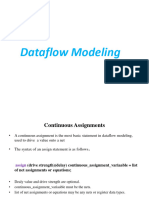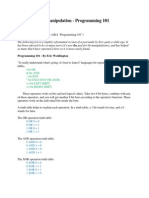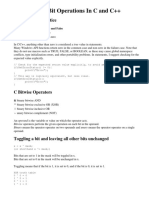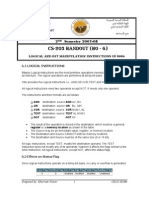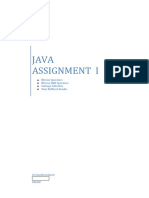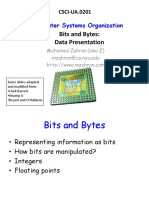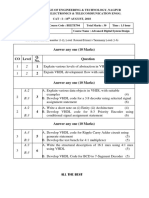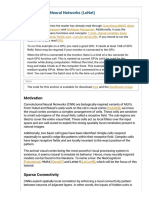0% found this document useful (0 votes)
15 views2 pages2024 Bitwise Operators
The document explains bitwise operations in computer programming, detailing how they operate on individual bits of binary numerals. It distinguishes between bitwise operators and instructions, providing examples of AND, OR, and XOR operations. Additionally, it discusses the usage of logical negation and 1's complement in both C and assembly language, highlighting common syntax errors related to scalar values.
Uploaded by
sararoza123321Copyright
© © All Rights Reserved
We take content rights seriously. If you suspect this is your content, claim it here.
Available Formats
Download as PDF, TXT or read online on Scribd
0% found this document useful (0 votes)
15 views2 pages2024 Bitwise Operators
The document explains bitwise operations in computer programming, detailing how they operate on individual bits of binary numerals. It distinguishes between bitwise operators and instructions, providing examples of AND, OR, and XOR operations. Additionally, it discusses the usage of logical negation and 1's complement in both C and assembly language, highlighting common syntax errors related to scalar values.
Uploaded by
sararoza123321Copyright
© © All Rights Reserved
We take content rights seriously. If you suspect this is your content, claim it here.
Available Formats
Download as PDF, TXT or read online on Scribd
/ 2












